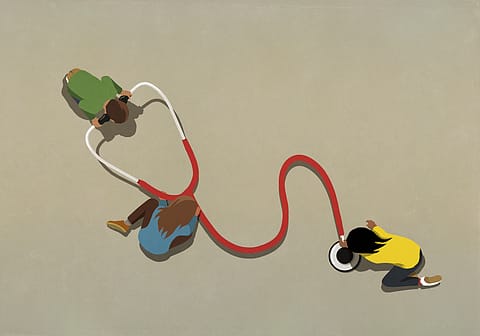One Nation, One Healthcare cost not practical: Centre
Health ministry says observations are based on a virtual meeting it had with its state and UT counterparts on March 19

The central government has stated that variations in the geographical and socio-economic levels of states and union territories make it difficult to fix a standard cost of medical procedures and services across the country.
In an affidavit filed before the Supreme Court of India on April 29, the Union Ministry of Health and Family Welfare said the observations are based on a virtual meeting the central ministry had with its state and UT counterparts on March 19. The meeting was called to comply with the directions of the Supreme Court during the hearing of a petition filed by the Veterans Forum for Transparency in Public Life seeking standard rates for medical procedures and services in India.
The health ministry has proposed that each state or union territory should determine standardised medical costs based on -- regional factors, recognising that rates vary due to local conditions, types of healthcare services, procedure locations, clinical establishment types, and qualifications or experience. Noting that health is a ‘state subject’, the ministry said the central government would be in a position to compile and determine the range of rates for different medical procedures and services only after the States and UTs work out standardised medical costs at their level.
The ministry informed the Supreme Court that the state governments of Haryana, Bihar, Telangana, Mizoram etc said multiple rounds of stakeholder discussions, including that of private healthcare providers will be needed as a one-size-fits-all approach is not feasible. States of Gujarat and Madhya Pradesh said that any rate range fixation may lead to serious compromise of quality healthcare and patient treatment in private establishments.
Some states also pointed out that there is no provision for fixation of rates of medical services and procedures in their state act.
Echoing the concerns raised by the government, Abhay Soi, managing director of Max Healthcare and president of the healthcare industry association NATHEALTH said that standardising rates of treatment packages will have significant implications on the quality of healthcare services, patient safety, treatment outcomes, sustainability, and the continued investment required to meet unfulfilled infrastructure and clinical capacity expansion towards healthcare for all agenda.
The Supreme Court, while hearing the petition on February 27, had asked the central government to come out with a concrete proposal by the next date of hearing.